Bottom line: Article II and XI cooperatives (a/k/a Mitchell Lamas and HDFCs) are exempt from the HPD marketing portal requirements of Local Law 64 and unit and, absent any other written agreement, resales can continue as usual.
What were the Local Law 64 marketing requirements?
Local Law 64 in 2018 required the New York City Department of Housing Preservation and Development (“HPD”) to establish an online housing portal to foster a uniform and transparent process for the marketing of available rental and for-sale affordable housing in New York City.
What is the HPD marketing portal?
Per Local Law 64, by July 1, 2020 HPD had to develop an online housing portal for use by owners of affordable units being offered for sale or rent, and for renters and homebuyers to apply for occupancy or purchase of an affordable unit—called NYC Housing Connect 2.0. HPD describes Housing Connect as an “online application system” for HPD/HDC-assisted affordable housing.
What’s the issue with the portal in the HDFC context?
Many established HDFCs expressed concern about Local Law 64 requiring HDFC shareholders/unit owners to use the new HPD marketing portal. As originally passed in 2018, a provision in the law required co-op owners who wanted to sell their units to list them on the HPD affordable housing portal — regardless if they intended to sell the unit to a relative or otherwise keep the unit in their family over generations. Beyond the complexity of registering available units online, Local Law 64 contains annual reporting requirements and fines owners up to $2,000 per month if they fail to report certain data to HPD. Many HDFC shareholders are seniors or low-to-moderate income families, so such fines could be financially devastating.
What happened to the requirement of the marketing portal for existing HDFCs as a result of their advocacy?
On July 28, 2020 the City Council passed the amendment to the NYC Administrative Code (Int. 1783) to exclude certain cooperatives—namely any cooperative incorporated pursuant to Article II, IV, V or XI of the Private Housing Finance Law—from the Housing Connect 2.0 requirements. Article II and XI cooperatives (a/k/a Mitchell Lamas and HDFCs) are exempt from the HPD marketing portal requirements of Local Law 64 and unit resales can continue as usual.
Anything else about marketing in the HDFC context to keep in mind?
Mitchell Lamas and HDFCs are still subject to the HPD Marketing Handbook for all initial sales. HPD has indicated that, in the future, the exclusion for resales could change because HPD is likely going to add provisions to subsequent regulatory agreements that will require all cooperative resales to be subject to the Marketing Handbook and/or Housing Connect portal. For now, HDFCs can maintain insider waiting lists for internal transfers based on need; however, family members who wish to split from the household must apply for another unit that becomes available through the HPD lottery process. In short, an established HDFC that re-engages with HPD—either by entering a new regulatory agreement or otherwise obtaining government financing, subsidy or tax exemptions—will be subject to some type of marketing guidelines for resales. Long established HDFCs with old or expired regulatory agreements are not subject to Local Law 64 marketing portal requirements and unit resales can proceed as usual.
What is the portal?
The New York City Council passed Local Law 64 in 2018, which amended the Administrative Code of the City of New York and required the New York City Department of Housing Preservation and Development (“HPD”) to establish an online housing portal to foster a uniform and transparent process for the marketing of available rental and for-sale affordable housing in New York City.
Per Local Law 64 of 2018, by July 1, 2020 HPD had to develop an online housing portal for use by owners of affordable units being offered for sale or rent, and for renters and homebuyers to apply for occupancy or purchase of an affordable unit. The primary purpose of the portal—called NYC Housing Connect 2.0—was to match the affordable units held by the owners with qualified renters and homebuyers from across the five boroughs. HPD describes Housing Connect as an “online application system” for HPD/HDC-assisted affordable housing.
What’s the issue with the portal in the HDFC context?
Many established HDFCs expressed concern about Local Law 64 requiring HDFC shareholders to use the new HPD marketing portal. As originally passed in 2018, a provision in the law required co-op owners who wanted to sell their units to list them on the HPD affordable housing portal — regardless if they intended to sell the unit to a relative or otherwise keep the unit in their family over generations. Beyond the complexity of registering available units online, Local Law 64 contains annual reporting requirements and fines owners from $100 to $2,000 per month if they fail to report certain data to HPD. Many HDFC shareholders are seniors or low-to-moderate income families, so such fines are not merely punitive but financially devastating. Furthermore, the first iteration of the portal proved to be costly to owners and burdensome as affordable housing providers have had to adapt to this use of technology.
Often, established HDFCs have internal waiting lists from which new shareholders are pulled when a unit becomes available. Also, many shareholders in long-time HDFCs have established estate plans, enabling family members to inherit their HDFC shares and thereby strengthening stability within the corporation by nurturing continuity and familiarity among the shareholders. In the United States, inheritance has been identified as a source of stability and wealth (as safe housing has great value), even in the limited equity space. For a new law to potentially remove that ability from limited equity shareholders to pass a unit down would have a disparate impact on low-to-moderate income persons.
These waiting lists and inheritance rights have been the source of criticism by some, who believe that the City-sponsored affordable housing homeownership programs have enriched only the lucky few who were part of the programs early-on. Some believe internal waiting lists lack oversight by the supervising agency, which then encourages bias against outsiders wanting to become new shareholders. The portal has been one of HPD’s responses to this criticism, although even HPD supports carving out certain cooperatives from Local Law 64, since the portal is primarily designed for large developers providing City-subsidized, rent-regulated affordable housing.
Many established HDFCs, not-for-profit community advocates and others opposed the portal’s application to HDFCs vehemently. An amendment to exclude certain cooperatives from the housing portal was introduced in October of 2019 but it languished in the Committee on Housing and Buildings for more than six months. Then, in response to growing concerns, on July 28, 2020 the City Council finally passed the amendment to the Administrative Code of the City of New York (Int. 1783) to exclude certain cooperatives—namely any cooperative incorporated pursuant to Article II, IV, V or XI of the Private Housing Finance Law—from the HPD housing portal requirements.
What does this exclusion from the portal requirement mean for your HDFC?
Article II and XI cooperatives (a/k/a Mitchell Lamas and HDFCs) are exempt from the HPD marketing portal requirements of Local Law 64 and unit resales can continue as usual.
Importantly, however, Mitchell Lamas and HDFCs are still subject to the HPD Marketing Handbook for all initial sales (i.e. vacant units or rental to homeowner) (see here for the 2020 Marketing Handbook https://www1.nyc.gov/assets/hpd/downloads/pdfs/services/marketing-handbook.pdf), which is known mainly for its lottery process.
Notably, Article II and XI cooperatives unit resales are not subject to the Marketing Handbook, as of now. HPD has indicated that this resales exclusion could potentially change in the future because HPD is likely going to add provisions to subsequent marketing handbooks and/or regulatory agreements that will require all cooperative resales to be subject to the Marketing Handbook and/or Housing Connect portal.
Importantly, for now, HDFCs can maintain insider waiting lists for internal transfers based on need (i.e. acceptable to HPD if there are disability needs or an entire family is moving to a different sized unit, but not allowed merely for the splitting of single households into two units). Family members who wish to split from the household must apply for another unit that becomes available through the HPD lottery process.
In short, an established HDFC that re-engages with HPD—either by entering a new regulatory agreement or otherwise obtaining government financing, subsidy or tax exemptions—will be subject to some type of marketing guidelines. For example, Article XI HDFC co-ops seeking new HPD financing, via preservation loans or tax exemptions, are now subject to HPD’s Marketing Handbook, which mandates the use of the portal in marketing vacancies. Existing HDFCs applying for financing from HPD need to know that, upon closing the loan transaction, the HDFC will need to use the Marketing Handbook to fill all current and future vacancies because the Regulatory Agreement will include language regarding adherence with the Marketing Handbook but will not necessarily subject an HDFC to the Housing Connect portal reporting requirements.
Long established HDFCs with old or expired regulatory agreements are not subject to Local Law 64 marketing portal requirements and unit resales can proceed as usual.
Attorney Advertising – For Information Only – No Legal Advice or Attorney-Client Relationship: These materials have been prepared by Goldstein Hall PLLC (the Firm) for informational purposes and are not legal advice. This information is not intended to create, and receipt of it does not constitute, a lawyer-client relationship. You should not act upon this information without seeking advice from a lawyer. Third-party resources that can be accessed with hypertext links from this web site are not under the control of the Firm and the Firm is not responsible for the contents of any of these third-party resources. The third-party hypertext links presented on this site are provided for your convenience only. The inclusion of any link on this site does not imply any recommendation, approval or endorsement of that site by the Firm.


